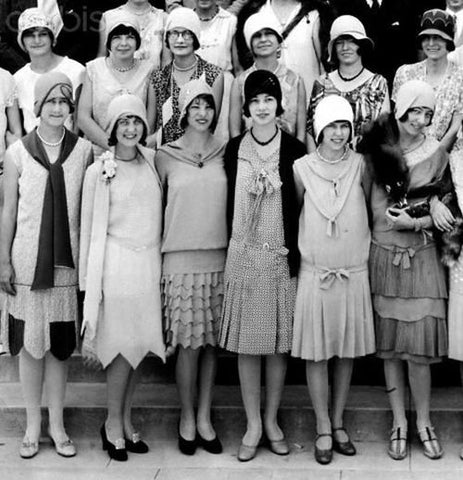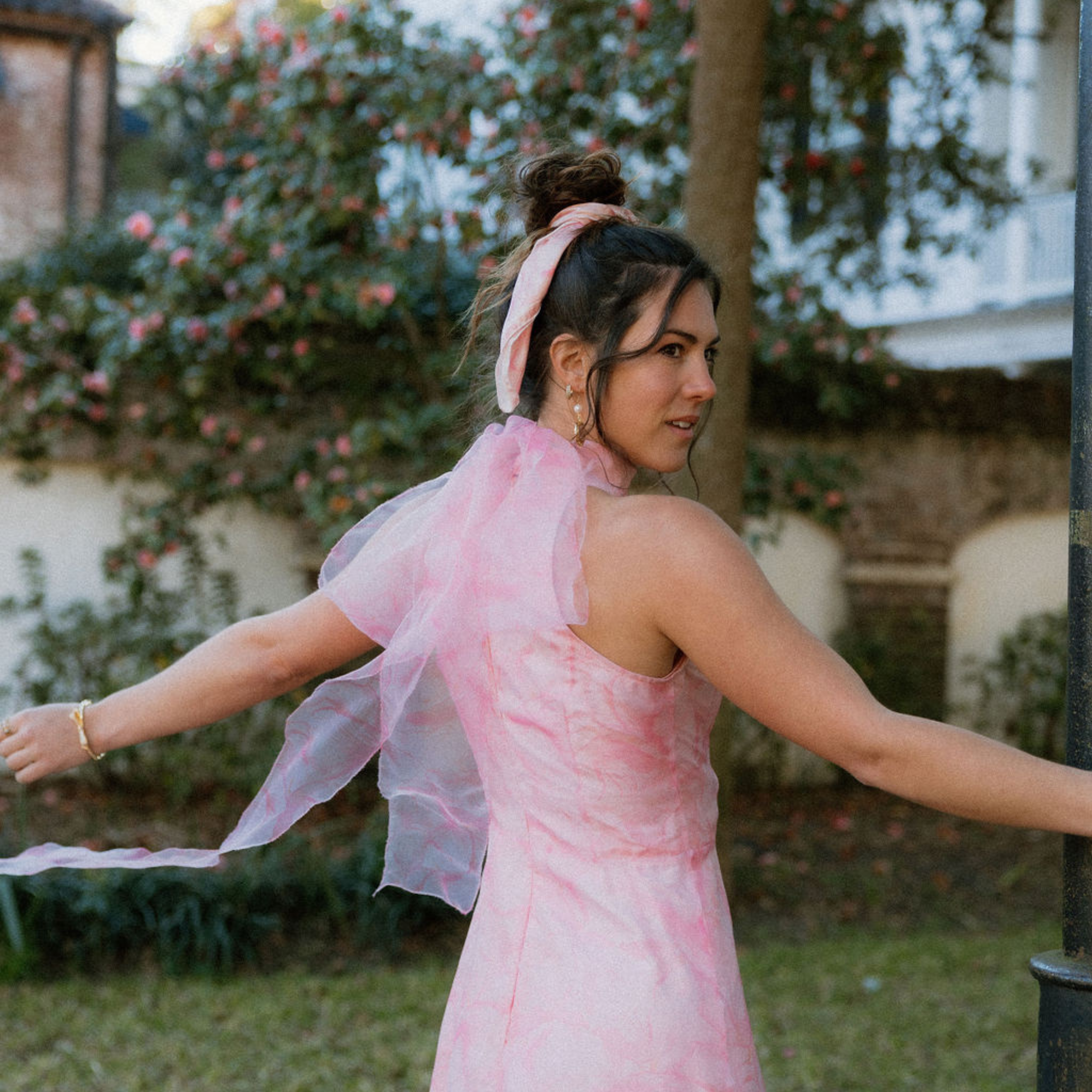7 Iconic Looks and Why They Made History | Fashion History | Emily Westenberger
In this blog, I am going to talk about what makes a garment iconic enough to go down in history as a game changer.
I love fashion history and am forever fascinated by how the world is a reflection of the current fashions trends and vice versa. We’ll talk about everything from flapper dresses to shoulder pads to Carrie Bradshaw’s naked dress. So let’s get started!
1. Chanel’s Little Black Dress.


Women wore a streamlined silhouette and eventually they started wearing trousers. Her little dress normalized the color black, which at the time was not commonly worn for everyday clothing. It was usually reserved for mourning.

In 1926, Vogue published a drawing of Chanel’s simple, timeless black dress in crêpe de chine. It had long narrow sleeves and was accessorized with a string of pearls. Vogue dubbed it ‘Chanel’s Ford’, in other words it was simple and accessible to women of all classes. They also called it the uniform for women of good taste. Its impact on fashion was lasting.
2. Katherine Hepburn’s pants and her tailored, casual style.

It helped define the new American look. She even played a role in designing her costumes for movies. She was a movie star cut from a different template; she wasn’t blonde and draped in sequins. Chanel introduced pants to women, but Katherine Hepburn normalized them.
3. Dior’s New Look.

In the 1950s post war, fashion moved from salons to the streets with easier care fabrics and speedier manufacturing systems. New silhouettes could be made faster. It wasn’t something exclusively for the rich.

Right before these changes, Dior’s New Look was introduced in 1947 and became the defining silhouette of the 1950s. It has a nipped hourglass shape, which brought a new era of womanly shape, which was much different than the straight dresses of the 1920s.
It’s important to note how fashion repeats itself. The nipped in waist and full skirt had a revival after the straight silhouette of the 1920s flappers. The fashion cycle of trends coming and going is very common and happens in precise moments about every 15 years.
After cinched waists and full skirts a period of rebellion came.
4. Twiggy’s boyish style and the 1960s boxy mod silhouette.

After a very feminine decade. the 1960s entered with rebellion and the Mod movement, a youth subculture with clothes that leaned toward ultra-short and sleeveless. Popular styles were miniskirts, jumpers, shift dresses, patent rain trenches, patent leather go-go boots, and tights. A popular outfit was coordinating a ribbed knit turtleneck with a miniskirt and matching tights with knee boots.

Twiggy’s boyish pixie crop haircut, doll-like features, and spindly legs made her one of the greatest muses of all time. She helped popularize the Mod trends.

She sported the youthful look and wore mini skirts to show off her long legs. She had an androgynous look and had a major impact on fashion with shift dresses, big earrings, and graphic, bold prints.
6. Diane Von Furstenberg's wrap dress.

The 1970s brought hippie chic, power dressing, glam rock, and even punk. There was shearling jackets, bell bottoms, and bell sleeves.

DVF made one of the most iconic and timeless styles during this period with her jersey wrap dress that hugged a woman’s body with ease. Any woman could wear her silk jersey, relaxed dresses.

They were and are timelessly flattering. The low neck, geometric prints, and sexy design made this dress a cult 70s happening.
7. Princess Diana’s Suits.

The 1980s was one of the most experimental periods in style history. Clothes defined personalities and made big statements like big shoulders.

There was big hair, spandex, ripped knees, leg warmers, high waisted jeans, and neon colors. Princess Diana’s short blonde curls and gentle eye make up was iconic of the 80s and into the 90s.

She stayed true to her style and dressed in suits with bold color, interesting textures, and fun prints.
7. Sarah Jessica Parker and her eclectic Sex and the City wardrobe.

She got risky with fashion when she wore her naked dress in 1998 and donned a designer fur coat with knee high boots. She was the definition of fun and over-the-top.


Patricia Fields was the stylist behind her looks and she led a generation. Sex and the City made Manolo Blahniks mainstream.
Patricia Fields and the Sex and the City writers worked together. Carrie’s looks were often used as sartorial self narration. For example, she meets Big’s girlfriend in a cowboy hat and beach outfit that is doubly humiliating.

Her outfits were not only memorable but also relatable. Carrie helped push spaghetti straps, slip dresses, and designer shoes into popularity.
That's all for today! Comment below if you’d like me to do more videos on fashion history or if you’d like me to talk about a particular period or decade of fashion history. Thanks for reading and have a great day!
Watch the full YouTube video here:
What to watch next?
Here is Part 1 of Fashion Drawing for Beginners. If you haven’t seen my video or read my blog on where inspiration comes from you can click here. You can watch my video and read my blog on how to make a mood board here. Stay tuned for my next blog/video on My Past Fashion Mistakes and How I Would Fix Them!
Follow me on:





